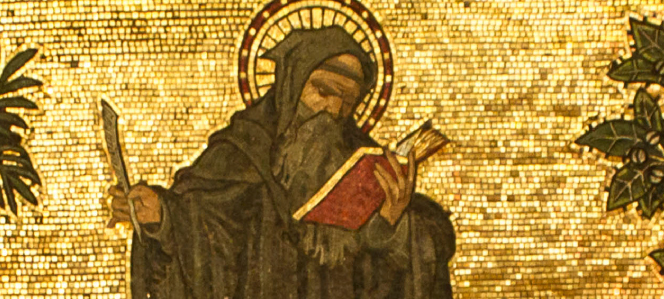There is an understanding of the Church put forward by her detractors and enemies that for much (if not all) of its history, the Church has been a backward institution responsible for fomenting superstition, persecution and violence. Is this true? Might there be something that this negative appraisal is missing?
From roughly the sixth to the tenth century, civilization in Western Europe passed through a momentous transformation as the power of Rome faded and the culture that had enabled that empire to flourish and grow fractured. The grandeur of Rome passed into memory and a new kind of Europe emerged in its place.
In the midst of this cultural transformation a monk by the name of Benedict founded a new kind of religious movement that would act as a stabilizing influence for the peoples of Europe. Monks of the Benedictine Rule would establish monastic houses, and in their efforts to bring the Gospel to bear on their time and place they would produce innovations in technology, advance intellectual inquiry, produce art and music, and preserve the cultural patrimony of the ancient world. All this was accomplished for Christ and because of Christ.
Saint Bede, whose memory the Church celebrates today, was a member of this Benedictine movement. He was born in the year 673.
Bede lived a life of exemplary holiness and was known for his charity and decency. He also had a prodigious intellect, writing theological treatises, commentaries on the Scriptures and histories, all of which remain primary sources for scholars of our own time.
If there is a lesson for us in the witness of Saint Bede it might be about the importance of knowing the Faith in depth and practicing it with enthusiasm. The dynamism of knowing what the Church teaches and practicing that teaching as a whole way of life is the source of creative energy for mission. If the minds of the Church’s faithful remain lackluster, reactionary or immature and the practice of the Faith is gestured toward rather than accomplished, the culture of the Church will not advance and grow.
The Benedictine way of life indicates that Faith in Christ is never just a matter of mere activism or sentimentality. A lasting culture cannot be built upon such shifting foundations. While not all in the Church will have the intelligence of Saint Bede or will embody with such radicality the monastic way of life, we can make the effort to know what the Church teaches and why and seek to fulfill the precepts of the Faith.
Also, we live in an age in which the contribution of the Church to society and culture, past and present, is often painted in broad strokes of negativity. Saint Bede’s witness demonstrates that the Faith’s influence on humanity’s cultural aspirations is something that can be appreciated, rather than decried and feared.
May St. Bede intercede for us and help us in our mission to transform the culture in which we live through the grace and power of Jesus Christ.
The inscription on the tomb of St. Bede in Durham:
“Christ is the morning star
Who when the night
Of this world is past
Brings to his saints
The promise of
The light of life
& opens everlasting day.”
